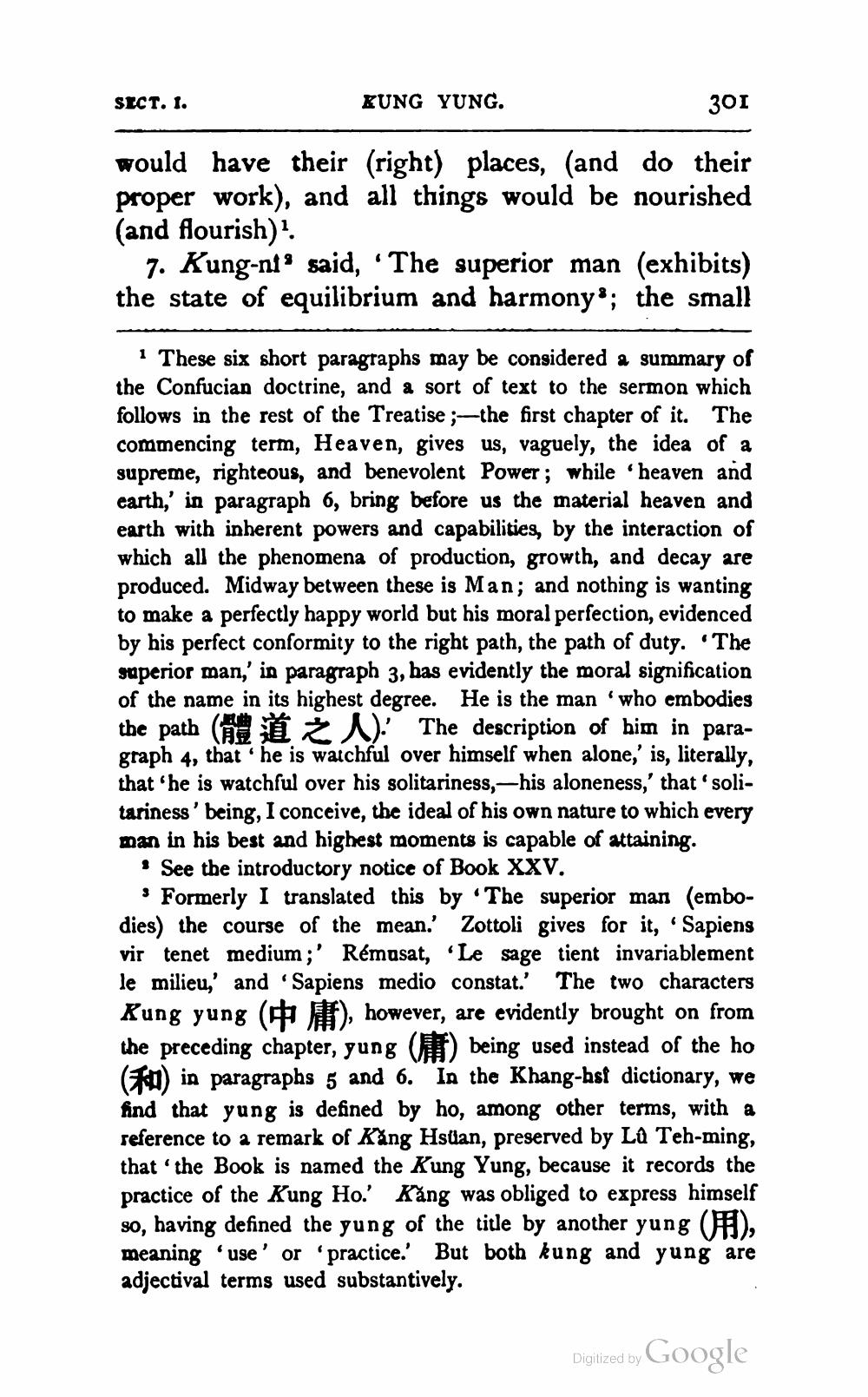________________
SECT. I.
KUNG YUNG.
301
would have their (right) places, (and do their proper work), and all things would be nourished (and flourish)?
7. Kung-nis said, The superior man (exhibits) the state of equilibrium and harmony8; the small
· These six short paragraphs may be considered a summary of the Confucian doctrine, and a sort of text to the sermon which follows in the rest of the Treatise; the first chapter of it. The commencing term, Heaven, gives us, vaguely, the idea of a supreme, righteous, and benevolent Power ; while heaven and earth,' in paragraph 6, bring before us the material heaven and earth with inherent powers and capabilities, by the interaction of which all the phenomena of production, growth, and decay are produced. Midway between these is Man; and nothing is wanting to make a perfectly happy world but his moral perfection, evidenced by his perfect conformity to the right path, the path of duty. The superior man,' in paragraph 3, bas evidently the moral signification of the name in its highest degree. He is the man who embodies the path ( Ź N . The description of him in paragraph 4, that he is watchful over himself when alone,' is, literally, that he is watchful over his solitariness,—his aloneness,' that'solitariness' being, I conceive, the ideal of his own nature to which every man in his best and highest moments is capable of attaining. · See the introductory notice of Book XXV.
Formerly I translated this by `The superior man (embodies) the course of the mean.' Zottoli gives for it, Sapiens vir tenet medium;' Rémusat, 'Le sage tient invariablement le milieu,' and 'Sapiens medio constat.' The two characters Kung yung ( W), however, are evidently brought on from the preceding chapter, yung (9) being used instead of the ho Ef) in paragraphs 5 and 6. In the Khang-hsf dictionary, we find that yung is defined by ho, among other terms, with a reference to a remark of King Hsuan, preserved by LQ Teh-ming, that the Book is named the Kung Yung, because it records the practice of the Kung Ho.' Kang was obliged to express himself so, having defined the yung of the title by another yung (), meaning "use' or 'practice. But both kung and yung are adjectival terms used substantively.
Digitized by Google




